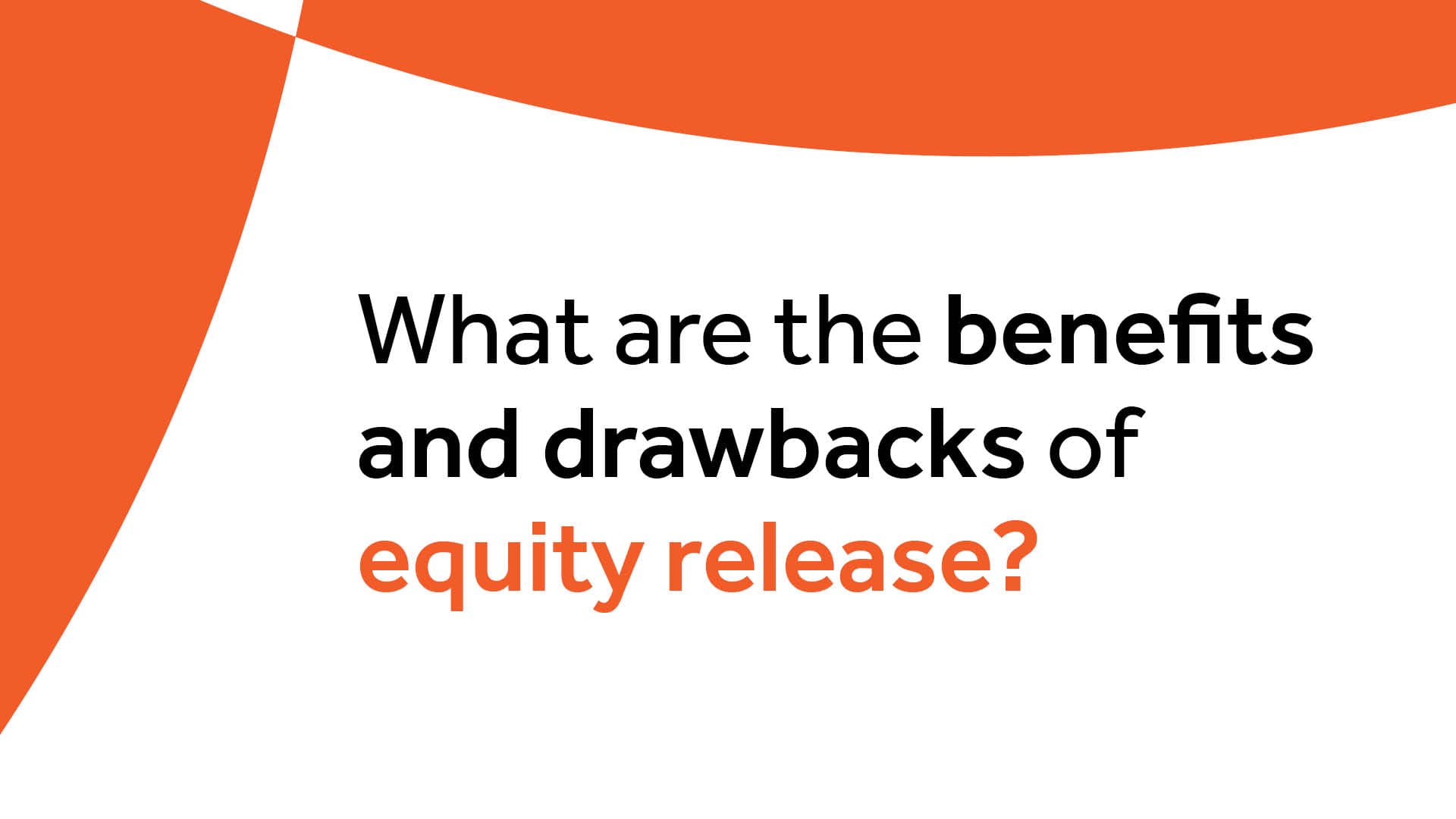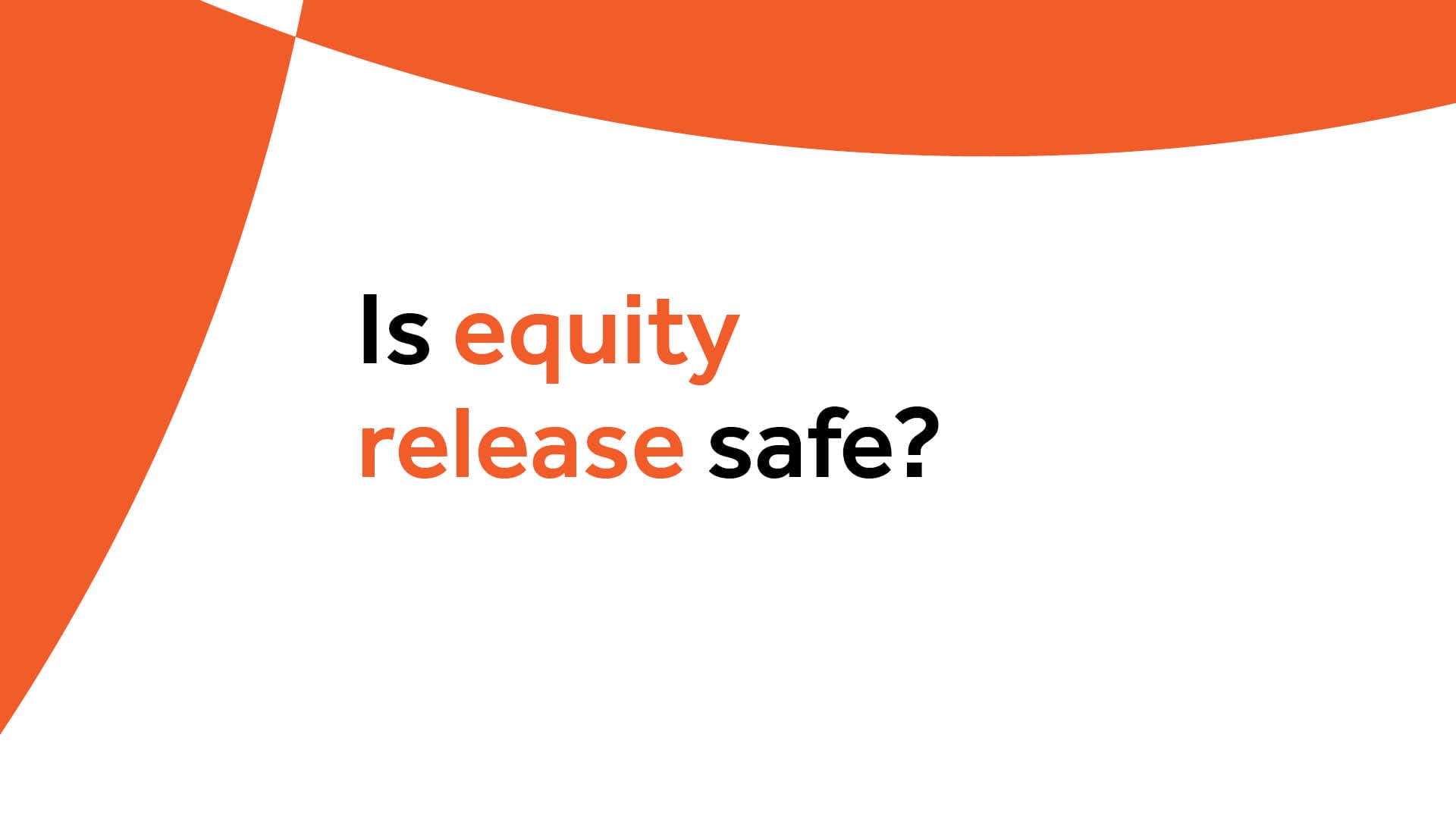We use some essential cookies to make our website work properly.
We’d also like to set additional cookies to help us improve our website, tailor marketing and provide a more personal experience.
A lifetime mortgage is a type of equity release which is a loan secured against your home. It lets homeowners aged over 55 release some of the tax-free funds tied up in the value of their home. A lifetime mortgage could help you boost your retirement finances.
The money you unlock through a lifetime mortgage is tax-free. You can use it in several ways, such as:
Repay your existing mortgage
Support your loved ones
Boost your retirement finances
Make home improvements
See how much you could release tax-free with Key's award-winning equity release service
There are four types of lifetime mortgages available through Key and they work in different ways.
There are usually no monthly repayments to make with a lump sum or drawdown lifetime mortgage. The loan, plus compound interest, is usually repaid through the sale of your property. This is generally when the last remaining applicant on the deeds passes away or moves into long-term care.
If you want to reduce the long-term cost of your plan, you can make voluntary payments of up to 10-12% each year without any early repayment charges.

Watch our video to learn more about the benefits and drawbacks of equity release and see if it could be right for you.
Video transcript (pdf)
If you're looking for ways to release funds from your home, you may be wondering: is equity release the same as a lifetime mortgage? A lifetime mortgage is a type of equity release, allowing you to free up tax-free funds in later life.
The other type of equity release is a home reversion plan. This involves selling all or part of your home for less than the market value to a provider in exchange for a lump sum. All lifetime mortgages we recommend let you keep full ownership of your home.
Read more about lifetime mortgages vs equity release.
Lifetime mortgages we recommend come with a range of safeguards and protections.
In addition, Key is a proud member of the Equity Release Council, which is a trade body with high standards of conduct within the equity release market.
All lifetime mortgages we recommend meet the Equity Release Council standards, meaning you'll:
Never owe more than your home's value
Have the right to move home, subject to criteria
Have the right to stay in your home for life

Watch our video to find out about the safeguards and protections included with lifetime mortgages we recommend.
Useful links:
Lifetime mortgage interest rates vary depending on your plan and circumstances. They're fixed for the life of your plan.
AER stands for Annual Equivalent Rate. It shows what the interest rate would be if the interest compounded each year.
APR stands for Annual Percentage Rate. It's the cost you pay each year to borrow money, including fees, expressed as a percentage.
Calculate now
If you're thinking about a lifetime mortgage, it's important you have all the facts. You have to get advice from a qualified equity release adviser before you apply for a lifetime mortgage. It’s a regulatory requirement. Your adviser will review all your later life finance options to find the most suitable one for you. And if a lifetime mortgage isn't right for you, we'll tell you.
Key is a specialist, award-winning lifetime mortgage adviser for the over 55s. We could help turn your property wealth into a way to fund your retirement. We research all later life mortgage options and provide trusted, expert advice that's personal to you.
ⓘ Our £1,699 advice fee is only payable if you go ahead with a lifetime mortgage.
Your other options with Key
If another product is more suitable, we'll refer you to a different specialist adviser within Key Group who can help. If you go ahead, you'll never be charged more than our standard fixed advice fee of £1,699, even if their fee is higher. Key offers alternatives to a lifetime mortgage such as a retirement interest-only mortgage or retirement repayment mortgage.
Other options to think about
It's important to know your other options before going ahead with a lifetime mortgage. These include: home reversion, downsizing, unsecured lending, using existing assets, or support from friends or family.
We're here to help
Our friendly equity release team is available: Mon-Thurs 9am-8pm, Fri 9am-5pm, Sat 9am-1pm, Sun closed.
To be eligible for a lifetime mortgage through Key, you must be a UK homeowner:
Aged 55+ (including all joint applicants)
With a property worth £70,000+
In order to qualify for a Key lifetime mortgage, you must be a UK homeowner aged over 55 with a property worth £70,000+.
If you're not eligible for a lifetime mortgage equity release now, try our later life mortgage finder. We could still help you take control of your retirement finances.
You may want to repay some of your lifetime mortgage early and reduce your total cost of borrowing.
Subject to criteria, you have the option of making ad-hoc repayments of up to 10-12% of the initial amount you've borrowed each year.
A lifetime mortgage is designed to run for the rest of your life. Further repayments, including repaying in full, may incur early repayment charges. Your adviser will explain this in detail so you know what your options are.
We make your journey as quick and easy as possible. Our applications complete within 8-12 weeks on average.
As each application is unique, timescales aren't guaranteed. Applications for a lifetime mortgage include the following steps:
Use our free UK lifetime mortgage calculator: It's free and no-obligation - try it now
Speak to an adviser: You then speak to one of our qualified equity release advisers on a date and time that works for you
Discuss legalities: You'll discuss the legalities with your independent solicitor
Receive money: You'll receive your money to spend in a variety of ways